Western Europe Meets Eastern Europe
Yasmina Reza’s Bella Figura in Zagreb, Croatia
ERIC: I don’t understand this evening, Françoise.
French playwright Yasmina Reza is no stranger to Croatian audiences, which already had the privilege of seeing Conversations After a Burial (Osijek), Life x 3 (at Mala scena inZagreb), God of Carnage (Theatre Rugantino, Zagreb), Art ( at Theatre Aplauz in Zagreb), and finally Bella Figura, originally written for the Schaubühne ensemble and directed and translated by Thomas Ostermeier (with co-translator Florian Borchmeyer). The Croatian production of Bella Figura, directed by Boris Liješević and performed by the Croatian National Theatre (CNT) in Zagreb, came hot on the heels of the Berlin production.
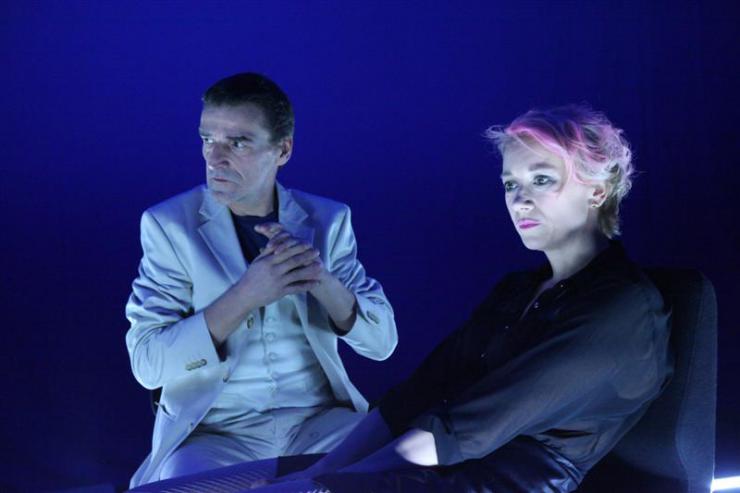
Reza is an acclaimed playwright who positively eschews the notion that she sets out to write plays with big ideas. She is interested in looking beneath the perfect veneer of the upper-middle class. Her work has been widely translated, making her a well-known playwright in Francophone and Anglophone countries alike.
Throughout the thirteen years hosting the World Theatre Festival, CNT Artistic Director Dubravka Vrgoč and Drama Director Ivica Buljan have previously produced both Reza and Ostermeier. The Schaubühne production of Bella Figura faced mixed, but mainly negative, reviews. For me, the CNT production brought up questions around the relationship between Croatian and broader European narratives.
In CNT’s program note, Vrgoč insists on theatre poetics attuned to the rhythm of the everyday. The stage is not only an area enclosed by the wings or walls of the theatre—it expands almost everywhere, from public foyer to nearby streets, to living rooms and bedrooms. Most of us would certainly agree that theatre should address current issues, and that its main purpose is to keep us aware and conscious about the world we live in—a world that is not the same in all of its corners.
Most of us would certainly agree that theatre should address current issues, and that its main purpose is to keep us aware and conscious about the world we live in—a world that is not the same in all of its corners.
CNT’s production of Reza’s Bella Figura challenged Croatian audiences with a completely different world than their own. The play begins at the parking lot of a fancy restaurant, and then relocates to the toilet and restaurant dining room. The five characters in Bella Figura (a married couple, the husband’s mother, and a married man and his mistress) just want to have some fun and and casual sex. The women are portrayed as hysterical, the men as cool and composed. Yvonne Blum (Ksenija Marinković) is the only character that falls outside this pattern, but her misbehavior and frank remarks are consequences of Alzheimer’s disease. After the first scene, out of nowhere, we start to realize the five characters are not complete strangers, and layers of filth under the rug of their bourgeoisie lives begin to unfold. Serbian Director Liješević tried his best to evoke in Reza’s character’s deeper selves through the tremendous ensemble acting skills of the CNT company.
From my own experience, common motifs of sexuality, superficiality, and skeletons in the closet in Western European productions are seldom staged in a way that goes beyond the average audience member’s comfort zone. In his essay, Tales from the Wild West, Macedonian Playwright Goran Stefanovski wrote that Eastern Europe is desperately trying to reinvent itself and define a new identity by waking up from historical narcosis. That narcosis happened to Croatia during and after the Homeland War (1991-1995). Croatian democracy is still quite a new experience. We are mostly offered theatrical pieces from the West, and we gladly embrace globalism and call it progress even though sometimes it hardly corresponds to our reality. Bella Figura was a prime example of the space between our narratives.
We are mostly offered theatrical pieces from the West, and we gladly embrace globalism and call it progress even though sometimes it hardly corresponds to our reality.
Reza’s characters want to live consequence free despite their hyperemotional childish behavior and adulterous hijinks. This is a wild departure from the usual Croatian fare. In contrast to Western playwrights, and according to Sanja Nikčević’s study ‘’Finding a voice or politics, emotions and identity,’’ Croatian post war drama is desperately seeking identity. 1990s playwrights Bošnjak, Mihanović, Sajko, Šitivičić, and Vidić profile their characters as emotionally distant. It’s their way of seeking individual expression and voice in Croatian narratives. Their plays are dominated by intertextuality and the inability of their characters to verbally express their concerns. They find it easier to work physically than to communicate, to survive than to show kindness. It’s not that they do not appreciate emotions, it is rather a necessity of everyday tasks to keep emotions in check.
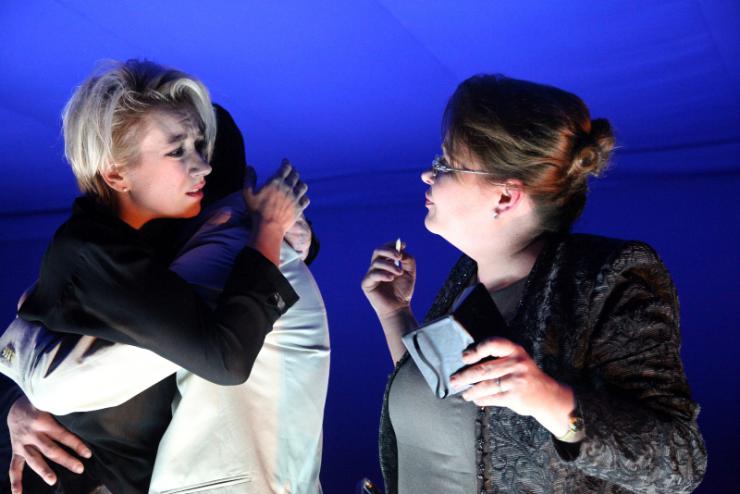
However, as I was sitting in the audience, watching the play I simply could not stop thinking about one question relevant to all theatre communities, and metaphorically expressed in the Eric’s line at the start of this piece—“I don’t understand this evening, Françoise.” Could the audience embrace this production and its commentary on modern societal emptiness at the same time when so many struggle with the financial crisis? What is the responsibility of the arts in times like this?
Bella Figura started to change the repertoire, image, and audience of CNT. Instead of big and traumatic issues, CNT plays are now more focused on the day-to-day through accessible stories of the everyday. Many social problems currently weigh on Croatian audiences. But whatever difficulties they face, few would deny that we are blessed with a diverse, still affordable, and accomplished theatre culture thanks to our theatremakers. CNT has succeeded in producing different plays that challenge the status quo for Croatian audiences. Now it’s up to the audience to follow their turn, or not.

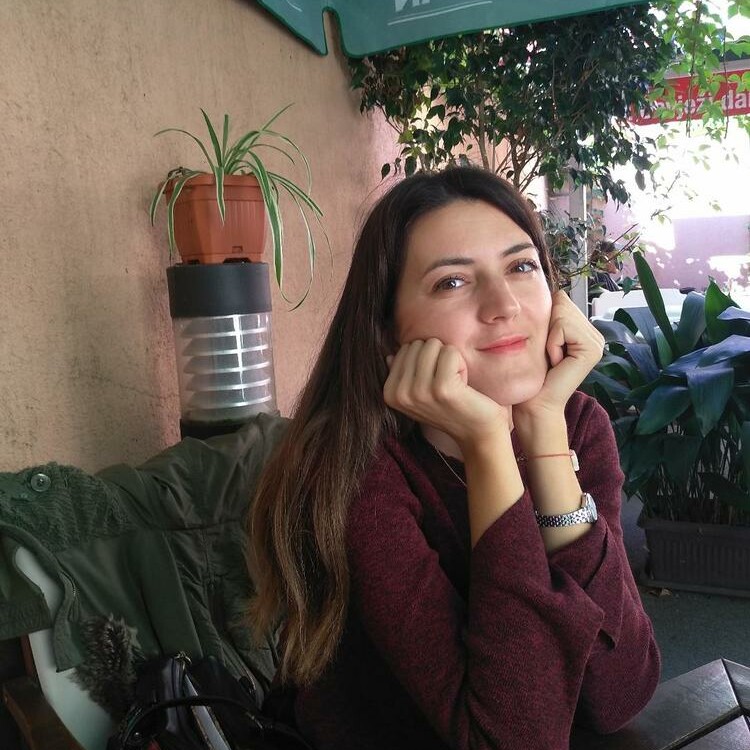
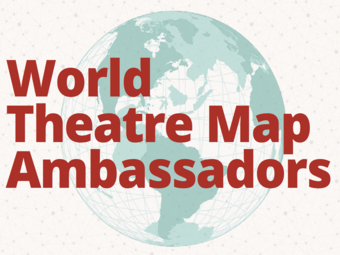

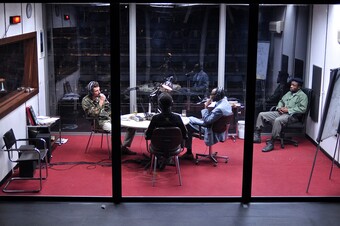

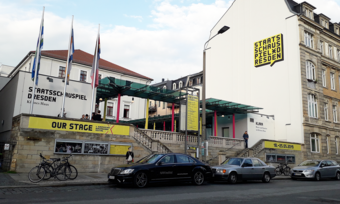

Comments
The article is just the start of the conversation—we want to know what you think about this subject, too! HowlRound is a space for knowledge-sharing, and we welcome spirited, thoughtful, and on-topic dialogue. Find our full comments policy here